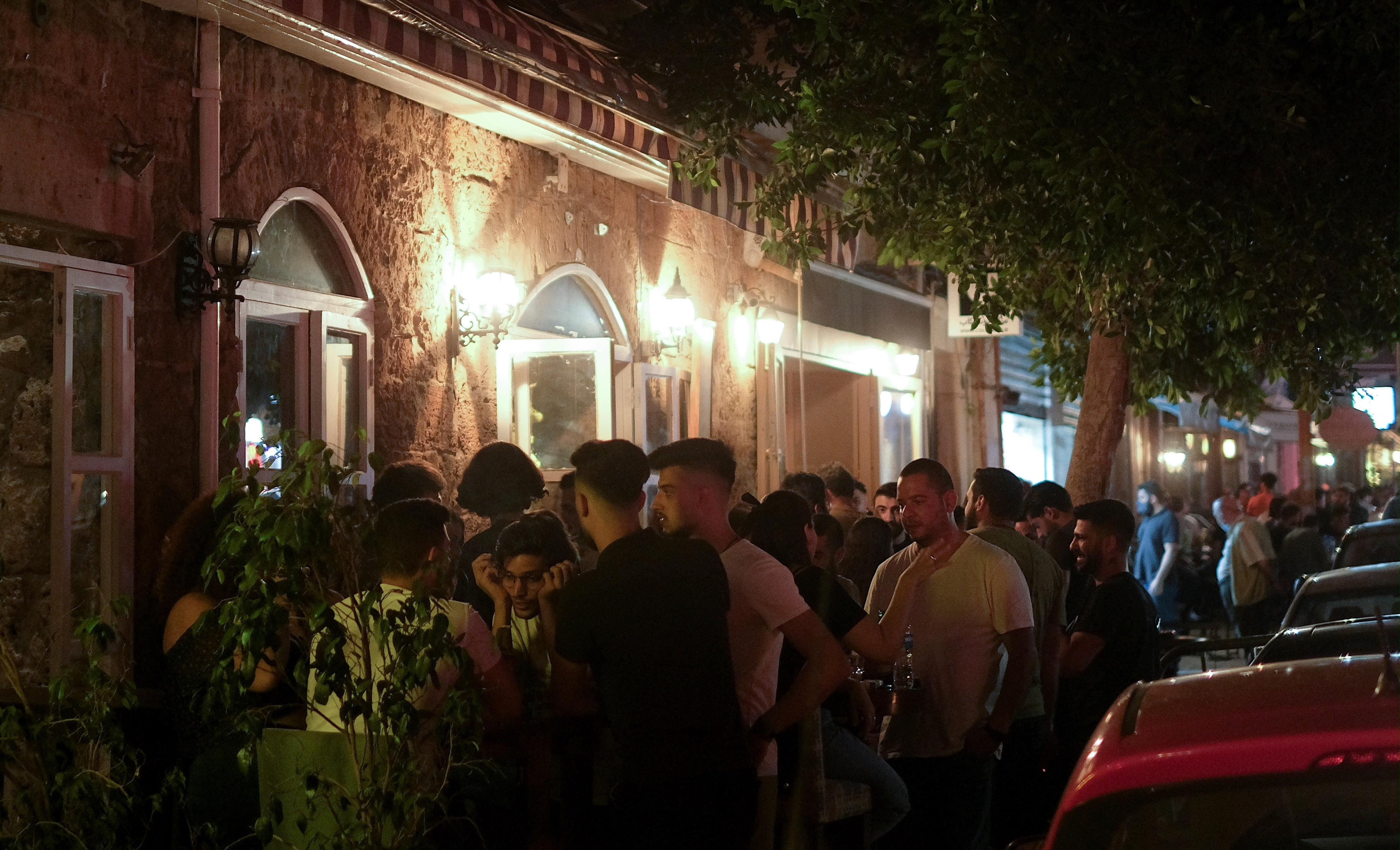Lebanon’s capital Beirut had a reputation as a Middle Eastern nightlife capital. Party-goers from the region, as well as Europeans, have long headed to the city to enjoy its hedonistic nightlife culture where raving from Friday to Monday was once common.
“Two or three well-known international artists [were] playing every weekend,” explained Rea, a Lebanese DJ and producer. Fees for artists could reach upwards of $100,000 as Beirut fought with Gulf party hub Dubai to book the biggest names.
But since 2019, residents of the city has been reeling from a financial crisis that has seen the Lebanese pound lose over 90% of its value in two years — propelling three-quarters of the country’s population of approximately 6.7 million into poverty.
The nightlife industry has also contended with political instability, a huge explosion at the city’s port on August 4, 2020 that killed over 200 people and caused extensive damage, and the COVID-19 pandemic.
Through it all, the club managers, DJs, producers and party-goers who comprise Beirut’s nightlife have been determined to keep the party spirit alive.
“Partying is one of the only outlets from thinking about [the political and financial] bulls…t, from drowning day by day,” Raed al-Halabi, the manager of one of Beirut’s remaining nightclubs, Ballroom Blitz, told DW.
Nurturing homegrown talent
Ballroom Blitz is one of only two main electronic music-focused clubs that have survived the turmoil of the past years. Meanwhile, Beirut music institutions The Garden and Grand Factory were damaged in last year’s port explosion and have not reopened since.
Ballroom Blitz once booked international names “to try and introduce new sounds to a Lebanese audience,” Raed explained, referring to Kode9, a Scottish DJ and Hyperdub label founder, and Afrodeutsche, a UK-based composer, producer and DJ.
But due to the falling local currency, the club was unable to pay the fees required by international artists.

Disco balls hang in The Grand Factory nightclub, which was damaged in last year’s port blast, in Beirut, Lebanon, May 27, 2021. Photo: Reuters/Emilie Madi
This forced club management to return to its original plan of being a cultural institute — the club has recently received funding from the Beirut-based Arab Fund for Arts and Culture to support local DJs and producers as part of an artist residency program.
“We have a gap as we can’t import talent,” Raed explained. “So it’s very important to work on the talent we have here now.”
Fighting economic segregation on the dance floor
With clubs reopening recently, costs are becoming prohibitively high for some, even with international artists left off the bill.
International students or NGO workers paid in US dollars are among the few who can afford to attend, explained Beirut-based DJ Mira Barbara, who goes by the name Duchesse.
There has also been a revival of house parties which provide a cheaper alternative for those struggling financially, according to Elie Aoun, a producer, DJ and one half of Beirut’s Hypnotic Ltd music label who goes by the name Lio.
It remains important to try and make parties accessible for all people because “rave culture started with oppressed people,” Lio added. “We need this clash of cultures [at parties].”
In a bid to help out people hit by the financial crisis and coronavirus pandemic, Ballroom Blitz also hosted the charity project, the Great Oven, which provides food for poorer communities.
Ongoing challenges fuel exodus
While Beirut’s struggling nightlife sector has sought innovative solutions, some of have not been able to overcome the challenges related to ongoing instability.
With some DJs now performing wedding sets to make money, according to Lio, well-established local artists are leaving Lebanon.
“Many DJ have moved to Dubai and Egypt, some have got 9-5 jobs in other Arab countries,” Rea explained.
Lio himself is planning on leaving.
“In Europe, you can think about what you want to do,” he said, adding that he would be able to plan for the future overseas.
He has his sights set on Barcelona. His record label partner has already moved to the Spanish city.
Rea is also considering moving on, explaining that she felt producing music in the city would be traumatic after her newly-built production studio was wiped out in the port blast.
Even though thick velvet curtains installed for soundproofing saved the room from being covered in broken glass, much of the equipment was destroyed and now she says she has no motivation “to fix anything.”
While trying to organise an event a few months earlier, Rea said that the preparations were interrupted by protesters burning tires and blocking roads, as well as fuel shortages and electricity cuts.
“We were going to give up,” she said. Yet they decided to continue due to the “sense of freedom” that it provided. The idea is to show that “we still exist, we’re still here,” Rea added.
“Since everyone lost a lot, it has motivated us to come together and unite,”
‘A very community-driven year’
Rea stressed that such community solidarity was important in a country that had experienced so much division. On October 14, street violence in Beirut killed at least six people, stirring memories of the country’s 15-year sectarian civil war that ended in 1990.
“It’s been a very community-driven year” for those in the nightlife industry, said Ballroom Blitz manager Raed. His aim is no longer to make money “because there isn’t any.”
But he wants his club to stay open because he “loves this place,” he added. “It has brought people together and brings a lot to the country.”
Featured image: People spend time at a bar in Mar Mikhael neighbourhood, an area that was damaged in last year’s port blast, in Beirut Lebanon, June 6, 2021. Photo: Reuters/Emilie Madi
(DW)

